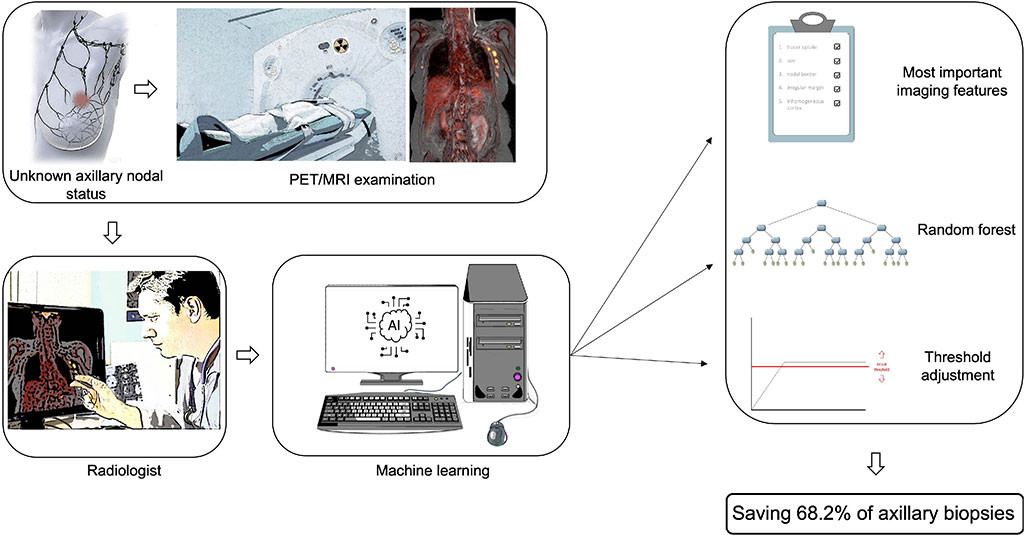PET/MRI Machine Learning Model Eliminates Sentinel Lymph Node Biopsy in Most Breast Cancer Patients
Posted on 21 Nov 2022
The presence of lymph node metastases in breast cancer patients plays a crucial role in treatment planning, especially regarding the extent of surgery and radiation. Therefore, it is of high clinical relevance to distinguish patients with lymph node metastases from patients without lymph node metastases. Now, nearly 70% of breast cancer patients could find out if their cancer has spread to their lymph nodes without having to undergo an invasive sentinel node biopsy. New research shows that with the help of machine learning (a type of artificial intelligence), axillary lymph node metastasis can be reliably ruled out based on imaging with PET/MRI.
In the study, researchers at the Institute for Diagnostic and Interventional Radiology at the University Hospital Düsseldorf (Düsseldorf, Germany) sought to determine whether machine learning prediction models could determine lymph node status in PET/MRI examinations as accurately as an experienced radiologist could. A total of 303 primary breast cancer patients from three medical centers were recruited for the study and were divided into a training group sample and a testing group sample.

All patients underwent MRI and dedicated whole-body 18F-FDG PET/MRI. The imaging datasets were evaluated for axillary lymph node metastases based on structural and functional features. Machine learning models were developed based on the MRI and PET/MRI training group sample and were then applied to the testing group sample. The diagnostic accuracy of MRI was 87.5% for both radiologists and the machine learning algorithm. For PET/MRI, the accuracy was 89.3% for radiologists and 91.2% for machine learning. After adjusting the machine learning model for PET/MRI, a sensitivity of 96.2% and a specificity of 68.2% was achieved.
“Sixty percent of patients do not have lymph node metastases at initial diagnosis of breast cancer,” said study author Janna Morawitz, MD, radiology resident at the Institute for Diagnostic and Interventional Radiology at the University Hospital Düsseldorf. “As such, it would be desirable to be able to prove negative lymph node status by imaging with a high degree of certainty to spare these patients the invasive procedure of biopsy or surgery.”
Related Links:
University Hospital Düsseldorf














